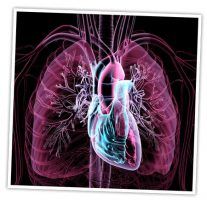Welcome to Facts Vibes! Get ready to dive into the fascinating world of liver fun facts. From its regenerative power to its essential role in detoxification, we’ll explore the incredible capabilities of this vital organ. Stay tuned for a captivating journey through the wonders of the liver!
The Remarkable Functions of the Liver: Fun Facts You Didn’t Know
The liver is a vital organ in the human body, performing an array of functions that are essential for our health. Here are some remarkable fun facts you might not know about this incredible organ:
1. Metabolic Powerhouse: The liver is responsible for over 500 vital functions, including metabolism, detoxification, and nutrient storage.
2. Regenerative Ability: It is the only organ in the body with the remarkable ability to regenerate itself. Even if 70% of its mass is removed, the liver can grow back to its original size.
3. Blood Filtration: The liver filters about 1.4 liters of blood every minute, removing toxins and waste products from the body.
4. Vitamin Storage: It stores essential vitamins such as A, D, E, K, and B12, releasing them when needed for various bodily functions.
5. Production of Proteins: The liver produces proteins essential for blood clotting, transportation of nutrients, and maintaining fluid balance in the body.
6. Bile Production: It synthesizes bile, a crucial substance for digestion and absorption of fats and fat-soluble vitamins.
7. Immune Function: The liver plays a key role in our immune system, helping to fight infections and remove bacteria from the bloodstream.
These amazing functions showcase just how essential the liver is to our overall well-being, and its ability to carry out such diverse and critical roles is truly remarkable.
Most popular facts
The liver is the largest internal organ in the human body.
Yes, the liver is the largest internal organ in the human body.
It has many important functions, including detoxification, protein synthesis, and production of biochemicals necessary for digestion.
The liver has many important functions, including detoxification, protein synthesis, and production of biochemicals necessary for digestion.
The liver can regenerate itself after injury or surgical removal.
Yes, the liver has the ability to regenerate itself after injury or surgical removal.
It plays a crucial role in metabolism, storing glucose as glycogen and converting it back to glucose when needed.
Glucose metabolism plays a crucial role in storing glucose as glycogen and converting it back to glucose when needed.
The liver produces bile, which helps in the digestion and absorption of fats.
The liver produces bile, which helps in the digestion and absorption of fats.
Non-alcoholic fatty liver disease (NAFLD) is a common condition where fat builds up in the liver.
Non-alcoholic fatty liver disease (NAFLD) is a common condition where fat builds up in the liver.
Cirrhosis, a late stage of scarring of the liver caused by many forms of liver diseases and conditions, can lead to liver failure.
Cirrhosis, a late stage of scarring of the liver caused by many forms of liver diseases and conditions, can lead to liver failure.
The liver filters and detoxifies blood, removing toxins, drugs, and other harmful substances.
The liver filters and detoxifies blood, removing toxins, drugs, and other harmful substances. Liver filters and detoxifies blood.
It is also involved in the metabolism of alcohol, breaking it down into less harmful substances.
The liver is strongly involved in the metabolism of alcohol, breaking it down into less harmful substances.
Liver cancer can occur due to primary liver cancer or metastatic cancer from other parts of the body.
Liver cancer can occur due to primary liver cancer or metastatic cancer from other parts of the body.
Hepatitis, inflammation of the liver, can be caused by viruses, excessive alcohol consumption, or autoimmune diseases.
Hepatitis, inflammation of the liver, can be caused by viruses, excessive alcohol consumption, or autoimmune diseases.
The liver has a unique dual blood supply from the hepatic artery and portal vein.
The liver has a unique dual blood supply from the hepatic artery and portal vein.
Some liver diseases, like hemochromatosis and Wilson’s disease, are genetic and can affect the organ’s function.
Sure. Hemochromatosis and Wilson’s disease are genetic liver diseases that can impact the organ’s function.
The liver stores vitamins and minerals such as vitamin A, D, E, K, and copper.
The liver stores vitamins and minerals such as vitamin A, D, E, K, and copper.
An unhealthy diet and lifestyle can contribute to liver damage and disease.
An unhealthy diet and lifestyle can contribute to liver damage and disease.
In conclusion, the liver is an incredible organ with fascinating fun facts that highlight its vital role in maintaining our overall health. From its regenerative abilities to its capacity to perform numerous essential functions, it’s clear that the liver is truly a remarkable part of the human body. Understanding and appreciating these fun facts can help us prioritize the care and well-being of this crucial organ.
